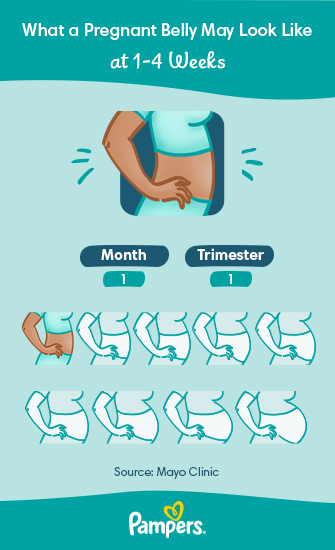
Pregnancy Symptoms at Week Two: A Comprehensive Guide
Pregnancy is a transformative journey that begins with subtle changes in the body. Week two of pregnancy, although not yet confirmed through a positive pregnancy test, marks the onset of early symptoms that may hint at the possibility of conception. These symptoms can vary from woman to woman, and their intensity can range from mild to noticeable.
Implantation Symptoms
Around week two, the fertilized egg, known as the blastocyst, implants itself into the lining of the uterus. This process, called implantation, can trigger a range of symptoms, including:
- Light spotting or implantation bleeding: This occurs when the blastocyst burrows into the uterine lining, causing a small amount of bleeding. It typically lasts for a few hours or days and is often mistaken for a light period.
- Cramping: Mild cramps in the lower abdomen can accompany implantation as the uterus expands to accommodate the growing embryo.
- Breast tenderness: Hormonal changes can lead to increased sensitivity and swelling of the breasts.
Early Pregnancy Symptoms
In addition to implantation symptoms, week two may also bring on early pregnancy symptoms, such as:
- Fatigue: Progesterone, a hormone produced during pregnancy, can cause drowsiness and fatigue.
- Nausea: Morning sickness, although more common in later weeks, can occasionally begin as early as week two.
- Frequent urination: The increased production of blood and fluids during pregnancy puts pressure on the bladder, leading to more frequent trips to the bathroom.
- Bloating: Hormonal changes and the growth of the uterus can cause bloating and gas.
- Food aversions and cravings: Altered taste buds and hormonal shifts can lead to sudden changes in food preferences.
- Mood swings: Fluctuating hormone levels can trigger emotional instability and mood swings.
Other Signs of Pregnancy
While not as common, some women may experience other signs of pregnancy during week two, including:
- Metallic taste in the mouth: This is caused by hormonal changes affecting the taste buds.
- Increased basal body temperature: The temperature taken first thing in the morning remains elevated after ovulation if pregnancy has occurred.
- Headaches: Mild headaches can be a sign of early pregnancy due to increased blood flow and hormonal changes.
Confirmation of Pregnancy
A positive pregnancy test is the most reliable way to confirm pregnancy. However, it’s important to note that home pregnancy tests may not be accurate until after a missed period, which typically occurs around week four or five. Blood tests, which measure the levels of the pregnancy hormone human chorionic gonadotropin (hCG), can provide earlier confirmation.
When to Seek Medical Attention
While most early pregnancy symptoms are normal, it’s important to seek medical attention if you experience any of the following:
- Severe pain or cramping: This could indicate an ectopic pregnancy, which is a life-threatening condition.
- Heavy bleeding: Excessive bleeding may be a sign of a miscarriage.
- Fever or chills: These could indicate an infection.
- Persistent nausea and vomiting: Severe morning sickness can lead to dehydration and electrolyte imbalances.
Conclusion
Week two of pregnancy is a time of subtle changes in the body that may hint at the possibility of conception. While implantation symptoms and early pregnancy signs can provide clues, a positive pregnancy test is the only definitive way to confirm pregnancy. It’s important to be aware of the symptoms and seek medical attention if any concerning symptoms arise. As the pregnancy progresses, these early signs will gradually become more pronounced, signaling the remarkable journey of creating a new life.